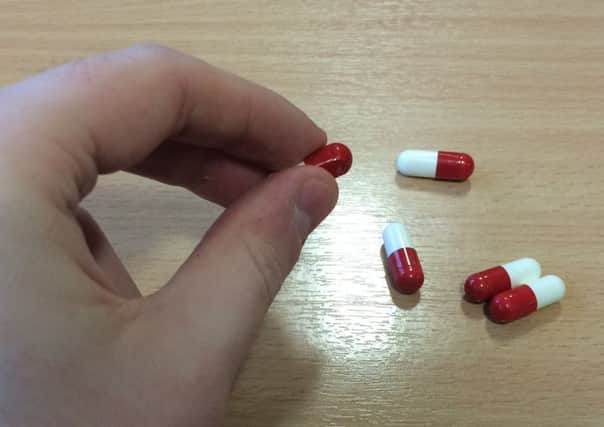Drugs to be developed faster and cheaper - with the help of Leeds-based researchers


The programme is called ADDoPT, which stands for Advanced Digital Design of Pharmaceutical Therapeutics. It is a four-year collaboration between the Government, industry and universities.
Professor Kevin Roberts, Brotherton Professor of Chemical Engineering at the University of Leeds, said that they are applying world-leading research to real-world practical problems. Professor Roberts, who will lead the Leeds team, said: “The days of the blockbuster drug are numbered. Many medicines that are coming through are more targeted and we need a streamlined development process to get them to market.”
Advertisement
Hide AdAdvertisement
Hide AdExplaining the process, he said: “Instead of doing a lot of very expensive trial and error in the lab and in manufacturing design, ADDoPT will be developing the use of computer modelling and design tools to help plan the design and manufacturing process from raw materials through formulation, manufacturing and quality testing. The idea is to identify and eliminate non-viable drugs as early as possible in the process and concentrate time and resources on the right things.”
Partners include the major pharmaceutical companies Pfizer, GlaxoSmithKline, AstraZeneca and Bristol-Myers Squibb.
The University of Leeds, University of Cambridge, the Centre for Innovative Manufacturing in Continuous Manufacturing and Crystallisation (CMAC) at the University of Strathclyde, the Cambridge Crystallographic Data Centre and the STFC Hartree Centre are the leading academic contributors.
Alison Clough, Acting Chief Executive of the Association of the British Pharmaceutical Industry (ABPI), said: “By reducing the risks associated with the manufacture of medicines we can provide the UK with a competitive advantage in a globally significant sector.”
Advertisement
Hide AdAdvertisement
Hide AdThe project is coordinated by Process Systems Enterprise Ltd, a supplier of advanced process modelling technology, and is part-funded under the Government’s Advanced Manufacturing Supply Chain Initiative.
It is supported by the Medicines Manufacturing Industry Partnership (MMIP), which was jointly established by the Association of the British Pharmaceutical Industry (ABPI) and the BioIndustry Association (BIA), to ensure UK competitiveness in medicines manufacturing. The process engineering firm Perceptive Engineering Ltd and the process design specialist Britest Ltd will also play key roles in the project.